Banner Image: Solway Mining has been exploring Mount Delton beginning 2020. The DayLight/William Q. Harmon
BY William Q. Harmon
- Russian-Liberian company Solway Mining Incorporated is not living up to a memorandum of understanding with Blei and Sehyi Ko-doo authorized forest communities in Nimba County
- Solway owes the communities two years of health and education payments, which by law should be at least two percent of its budget this and last year
- The communities do not know the amount they are owed as Solway has refused to disclose the budgets
- Blei and Sehyi Ko-doo changed their conservation management plans to “multiple use” to allow Solway explore iron ore on Mt. Blei and Mt. Delton. They are now threatening to pull out of the agreement if the company continues to dishonor it.
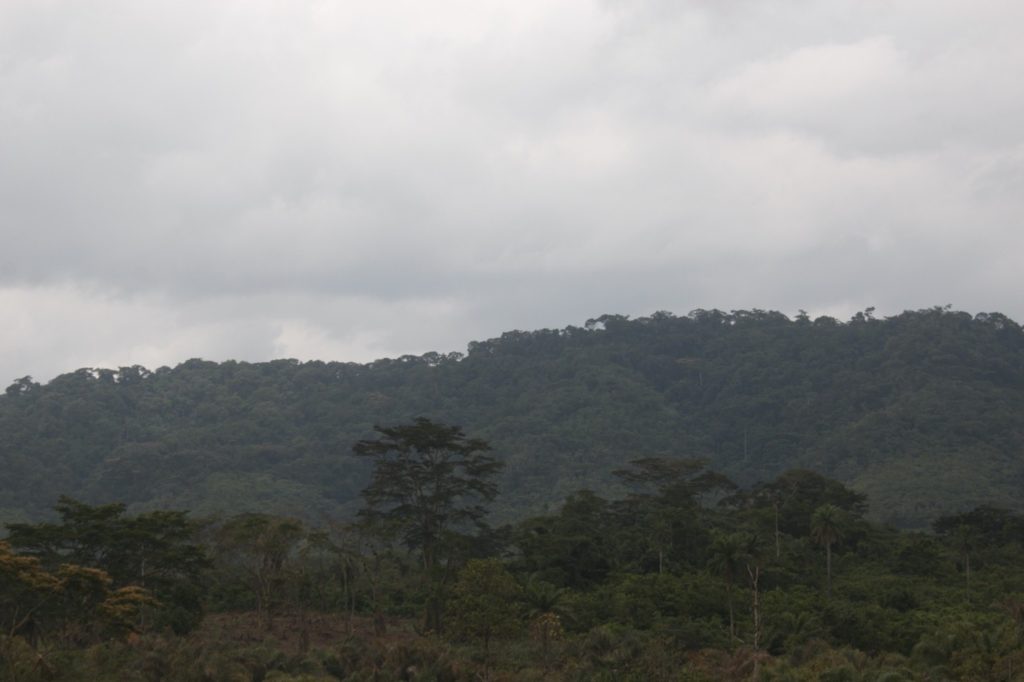
ZOLOWEE, Nimba County – When Solway Mining Incorporated finally signed a memorandum of understanding with Blei and Sehyi Ko-doo in June last year, it brought an end to a yearlong legal battle with the leaders of the two forest communties.
The MoU meant the company was now free to explore for iron for three years in the combined 222 hectares of montane, muggy forestlands in the Gbehley-Geh, Yarmein and Sehyi districts of Nimba County. The communities had to change their forest management plans from conservation to “multiple use” for the exploration to go on.
But tension is brewing again as Solway has failed to live up to its side of the agreement. The Liberian-Russian company has not paid the communities portion of its budget since last year as mandated by law. It has made other promises it has not fulfilled.
“We need this money and the company should start doing all it can to begin payment,” said Ericson Flomo, chief officer of Sehyi ko-doo’s community forest management body. “Some of our people fear that Solway has given us the money and we have eaten it.”
None of Blei and Sehyi Kod-oo know how much the company owes them because they have not seen the budget is. The Ministry of Mines and Energy has not told them and the company is not willing to tell them either. Solway had said last year it had a US$13 million budget for the project in the area. If that is the case, the company owes the communities US$260,000 at least for that year. Its failure to pay the fund is a breach of the Minerals and Mining Law of 2000. The law mandates mining companies granted exploration licenses to give at least two percent of their operational budget to project-affected communities.
“This does not show good dealings and openness from the company to us as a community,” says Saye Thompson, the chief officer of Blei. “Their budget supposed to be public information that we could access easily but this has not been so though we continue to inquire persistently.”
“We were working with people who were helping us to keep our forests. Since we had a change of heart and accepted Solway here, they should not treat us like children,” said Oretha Nahn, the secretary of Sehyi Ko-doo. “What belongs to us should be given us if we are to work together smoothly.”
The company denied any wrongdoing, blaming Thomson and Ericson for the delayed payments.
“The communities have refused to engage the company after countless invitations,” Solway’s operation officer, Ben Davis, told The DayLight in an interview. “We have been giving the communities guidance on how to get the money, but their leadership has not been cooperating.
“We are not compelled by any law to make known our budget. If the communities want it they can go to the Ministry of Mines. It is the institution of government that approves our budget, so it has the budget,” Davies added. He did not answer queries for comments on other aspects of MoU.
The Ministry of Lands, Mines and Energy did not respond to queries for comment on the matter. This reporter emailed Assistant Minister for Exploration Rexford Sartuh but did not get a response. That was followed by text messages, phone calls and three visits to the ministry’s Capitol Hill headquarters, which also did not materialize.
Solway’s failure to pay Blei and Sehyi Ko-doo does not only breach the mining law. It flouts the MoU, too. The company agreed in the MoU to pay the fees towards health and education directly into the communities’ account. Furthermore, it has violated and the MoU in other ways. It has failed to support its reforestation programs, provide safe drinking water, and fund maintenance and administration works of the leadership of the two community forests. It has also failed to support forest guards and make payment for trees it felled while paving a road into the humid forestlands.
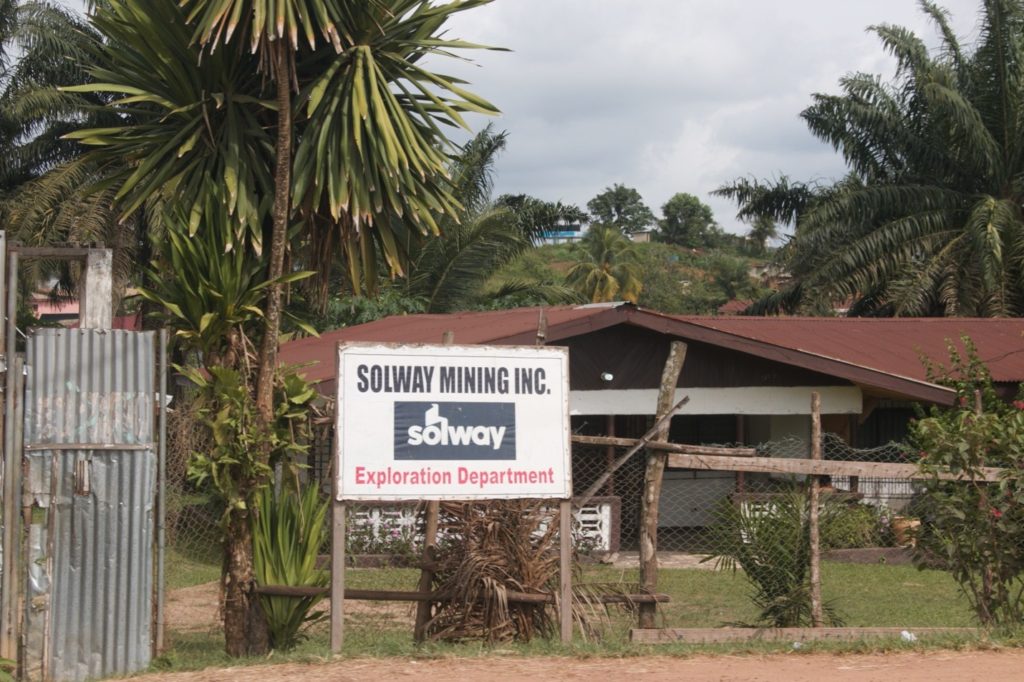
Solway’s relationship with the communities has always been tense, even from the very beginning. Solway began work in the forests without the consent of the communities, a violation of the Community Rights Law (CRL) of 2009 with Respect to Forest Lands that created the idea of community forestry. The communities sued Solway at the Sanniquillie Magisterial Court. The court halted the company’s work on two occasions and fined it US$3,000 for illegal entry in line with the law.
That was not the end of the controversy, though. Solway’s arrival shattered the communities’ conservation plans, with rebukes from the Forestry Development Authority (FDA) and civil society organizations alike. Before the company came, the community received support from national and international partners such as ArcelorMittal, the United
States Forest Service and USAID. The communities’ conservation program was also a part of Liberia’s countrywide move to conserve its portion (42 percent) of the Upper Guinea Forest, one of 34 biodiversity hotspots in the world. “It was the first time for a community to scrap its forest management plan for “multiple use” to accommodate mining in 10 years of the Community Rights Law.
“We are disappointed in the way the Ministry of Mines and Energy handled things,” FDA’s Managing Director C. Mike Doryen said then. “We think it has the propensity of discouraging our donors from making any more investments in the conservation area of our country.”
“The communities cannot operate their community forests under the CRL by allowing mining under the forest,” said Jonathan Yiah of the Sustainable Development Institute (SDI). “If this trend continues, community forest management in Liberia will be greatly undermined.”
The Ministry of Mines and Energy refuted those criticisms, claiming that the mining law does not recognize community forests. “[The communities] have their right to their land but when it comes to the issuance of mineral rights in Liberia, we don’t consider them,” Sartuh said at the time. “They believe that we should ask them before we issue license. We should not.”
Blei and Sehyi Ko-doo had come a long way with their conservation projects. They were two of the first authorized forest communities in Liberia, established in 2011. Their conservation programs were hailed across the forestry sector as they are adjacent to the East Nimba Nature Reserve. The reserve is home to endangered and endemic species such as the Nimba Toad, Nimba Flycatcher and the West African Chimpanzee. Ivory Coast and Guinea have also created conservation parks on their sides of the Nimba Range on which Blei and Delton are located.
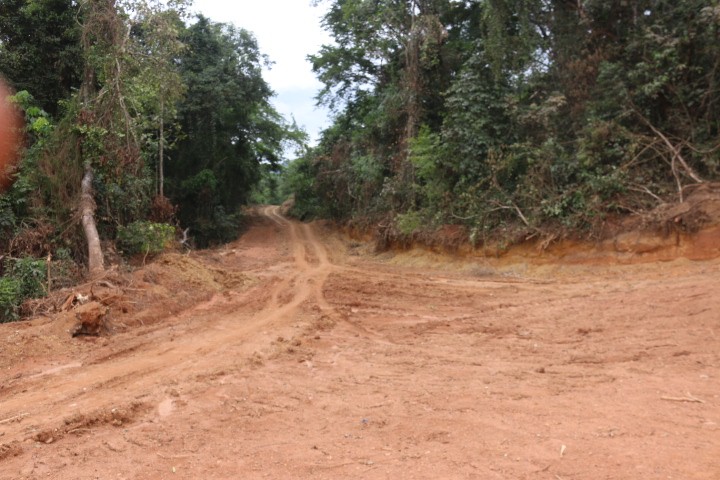
Solway’s exploration deal also stirred controversy among the company, the government of Liberia and ArcelorMittal. The London Stock Exchange-listed company—accused Solway—a company owned by Estonian multimillionaire, Aleksandr Bronstein—of encroaching on its concession. “Solway Mining Inc… has unlawfully entered upon and engaged in exploration activities in an area overlapping the concession area in Nimba County granted by the Government of Liberia… to AML pursuant to the mineral development agreement,” ArcelorMittal, Liberia’s biggest taxpayer, said in a letter in June last year. Both the government and Solway denied that claim.
So far, Solway has fulfilled a few clauses of the MoU. It has started an agricultural program for townswomen and recruited scores of local young people into its workforce. It has also paid US$20,000 as land rental fees for two years.
But the communities say that is not enough. “If Solway is not financially capable to pay our people well, run the biodiversity programs, pay our forest guards amongst other support,” they said in a letter to the FDA in January, “it would be fair enough for you to say it so that we call off the MoU without delay.”

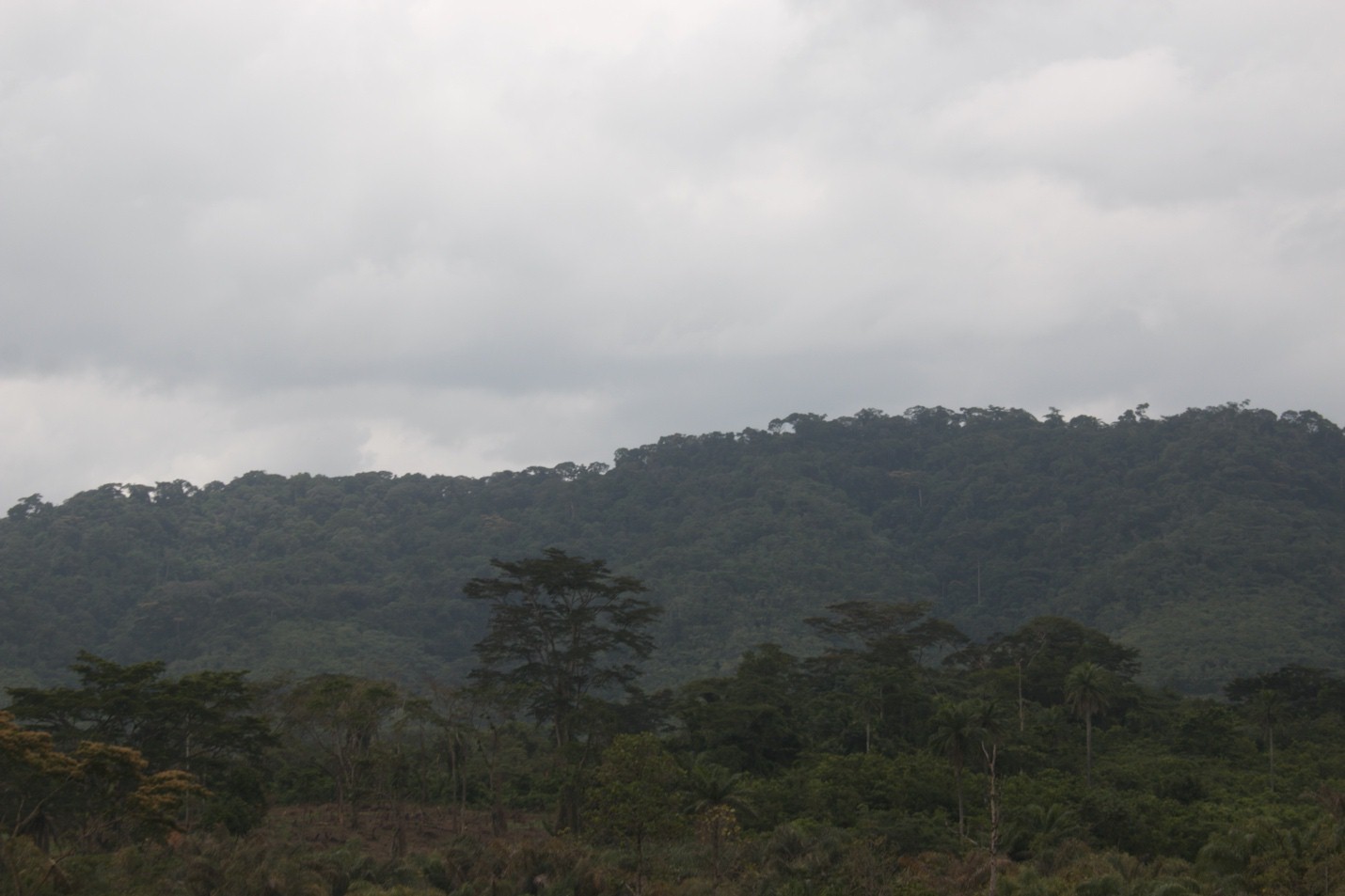
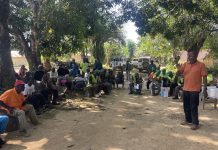

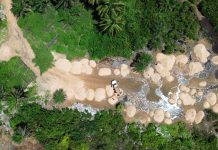
Facebook Comments